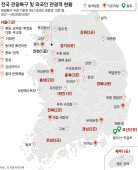High Stock Prices Are Bad for Some CEOs
High Stock Prices Are Bad for Some CEOs
Posted December. 23, 2005 03:00,
A bullish market is a boon to third generation senior executives of companies, and tens of billions of won in profits are being made from rising corporate stock prices are headlines that were printed in newspapers earlier this month. Yet, a senior executive of a large company says this is not the case. To the grandchildren of corporate founders who are interested in ownership, not just profits from trading stocks, high-rising stock prices are not real profits. They are mere numbers.
Third-generation CEOs who need to hold a certain percentage of stock to maintain their firm ownership find themselves suffering a heavier financial burden due to rising stock prices. The senior executive says that he is smiling on the outside, but inside, he feels like crying.
With a bullish stock market this year, companies that have yet to secure enough stock for firm ownership are unhappy. Rising stock prices have an effect on donation and inheritance taxes as well, providing a stumbling block to their efforts.
Buying Stock Becomes Expensive-
Chung Ui-sun, Kias senior executive president and son of Hyundai-Kia Automotive Group Chairman Jung Mong-gu, bought 3.5 million shares of the company (1.01 percent) by paying 12,570 won per share in February this year. He paid 44 billion won in total.
Jung bought an additional 3,404,500 shares (0.98 percent) by paying 18,700 won per share in November. He paid 63.66 billion won, which was 19.6 billion won more than what he paid nine months earlier.
The stock price of Kia Motors has increased since then, and now one has to pay 91.8 billion won to buy one percent of the companys shares. As of December 22, one share costs 26,250 won.
Oh Hyun-seok, a researcher for Samsung Securities, said, Jungs buyout played a large part in the surging stock prices of Kia. He predicted that Jung will also buy Hyundai Motor Companys stocks to promote managerial accountability.
The president of Kia does not hold any Hyundai Motor stock, which now hovers around 95,000 won per share.
The same is true for Shinsaegae vice president Jung Yong-jin, who is feeling the pinch because of rising stock prices.
In 1998 when he held 4.06 percent of the companys shares, the stock price was about 20,000 won. Last January, however, he had to pay 30.2 billion won to buy out 115,000 shares (0.39 percent) at a cost of 262,700 won per stock. This September, when his companys stocks were traded for 390,000 won, he spent 14.7 billion won to buy 37,600 shares (0.2 percent).
Not Enough Shares-
A CEO of a large conglomerate took the unusual step of ordering its public relations team not to promote the company for a while. Analysts in and out of the company understood that the CEO felt a financial burden to buy out the companys shares at a time when third-generation senior executives do not hold enough stock.
Many large companies in Korea have yet to secure enough shares of stock to ensure their grandchildren firm leadership control of their companies.
Lee Jae-yong, senior executive of Samsung Electronics and son of Samsung Group Chairman Lee Gun-hee, has only 961,573 shares (0.65 percent) of Samsung Electronics. Lee Hae-wook, vice president of Daelim Industrial Co., Ltd. and son of Chairman Lee Joon-yong, owns only 0.47 percent of his companys shares.
In the case of Hyosung Group, the eldest son holds 7.37 percent of company stock, but the other two sons have none yet. Jung Ji-yi, the eldest daughter of Hyundai Group Chairman Hyun Jung-eun, is registered as a senior executive of Hyundai U&I, a private affiliate of Hyundai, yet she has no stock.
Because of the controversy over purchasing ones own shares, the succession of corporate ownership is proceeding slowly, say experts in the financial sector. Before stock prices rise too much, they are searching for legal and reasonable ways to secure sufficient amounts of stock.
Jeong-Hun Park sunshade@donga.com
Headline News
- N. Korea redefines S. Korea as ‘hostile state’ in revised constitution
- Samsung develops graphic DRAM with industry-leading capacity and speed
- Three questions allegedly leaked via text message during Yonsei Univ. essay test
- China to inject 340 trillion won in loans to support real estate sector
- Dodgers beat Mets to take 2-1 lead in NLCS







